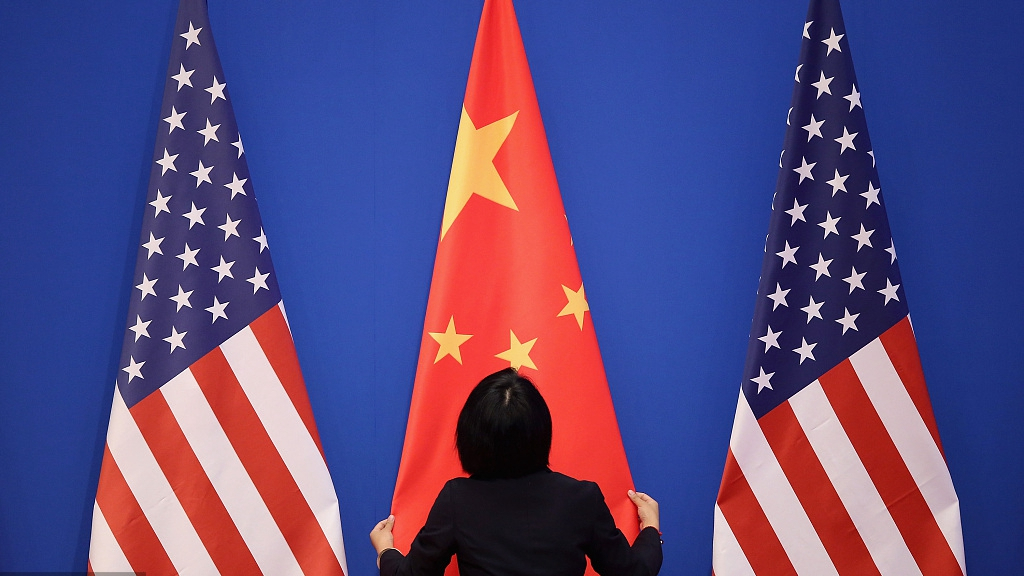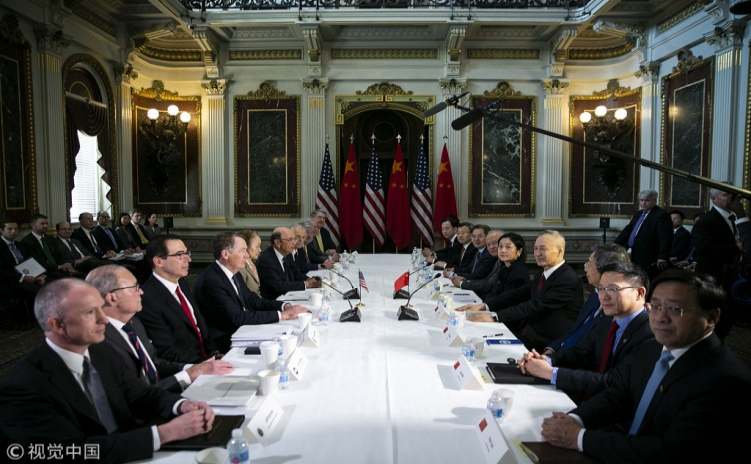
World
18:24, 03-Mar-2019
Coming up: From China-U.S. trade talks to a shared future?
Robert Lawrence Kuhn

China's “Two Sessions,” or “Liǎng Huì,” the annual meetings of the Chinese People's Political Consultative Conference (CPPCC), the top political advisory body, and the National People's Congress (NPC), the top legislature, commenced on March 3 and opens on March 5 respectively.
There is a formidable domestic agenda, including President Xi Jinping's call for preventing and defusing major risks: political, economic, and social, among others. Yet, due to the ongoing China-U.S. trade talks, the bilateral relation is on everyone's mind.
Today, China-U.S. friction comes at an inopportune time for China, when the country's annual GDP growth rate seems headed for its slowest in decades.
The China-U.S. rivalry, many now believe, has become far broader and more entrenched, including geopolitical competition, scientific and technological competition, as well as differing views on sensitive issues.
Must it be so? Can China and the U.S. find common ground so that both countries, and the world, can prosper? More broadly, how should China's diplomacy respond to international conditions?

The seventh round of China-U.S. high-level consultation on economy and trade held in Washington, DC, February 21, 2019. /VCG Photo
The seventh round of China-U.S. high-level consultation on economy and trade held in Washington, DC, February 21, 2019. /VCG Photo
At this year's Two Sessions, we see a heavy agenda of pressing domestic needs, yet the trade war is a real and present risk, not just to China and the U.S. but to the world economic growth.
The good news is that both presidents need a deal, though for different reasons. Putting it simply, President Xi is fighting to mitigate risks, while President Trump is planning an election fight.
A protracted trade war would disrupt their respective economies, undermining their respective fights. Moreover, there is international tension on multiple fronts, such as in the Middle East, on Brexit and the Eurozone, and in South Asia, East Asia, and Russia-all of which China is not immune from.
China calls for building "a global community with a shared future for all humanity" through win-win cooperation. The big picture is that China-U.S. agreement would be “win-win-win," which means wins for China, for the U.S. and for global peace and prosperity.
So, China must face a two-front battle: domestically, preventing and defusing major risks, plus continuing the fight against poverty and pollution; and internationally, generating mutual benefits through open international trade and investment.
There is synergy here: China's domestic and international challenges provide opportunity to reinforce each other. Such interdependence is a core feature of China's New Era.
That's why at the Two Sessions, while I am focused on the risks, I would also like to explore what it would take to reestablish or, honestly, a real partnership between the U.S. and China, which would greatly benefit the global community.

SITEMAP
Copyright © 2018 CGTN. Beijing ICP prepared NO.16065310-3
Copyright © 2018 CGTN. Beijing ICP prepared NO.16065310-3